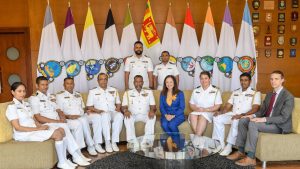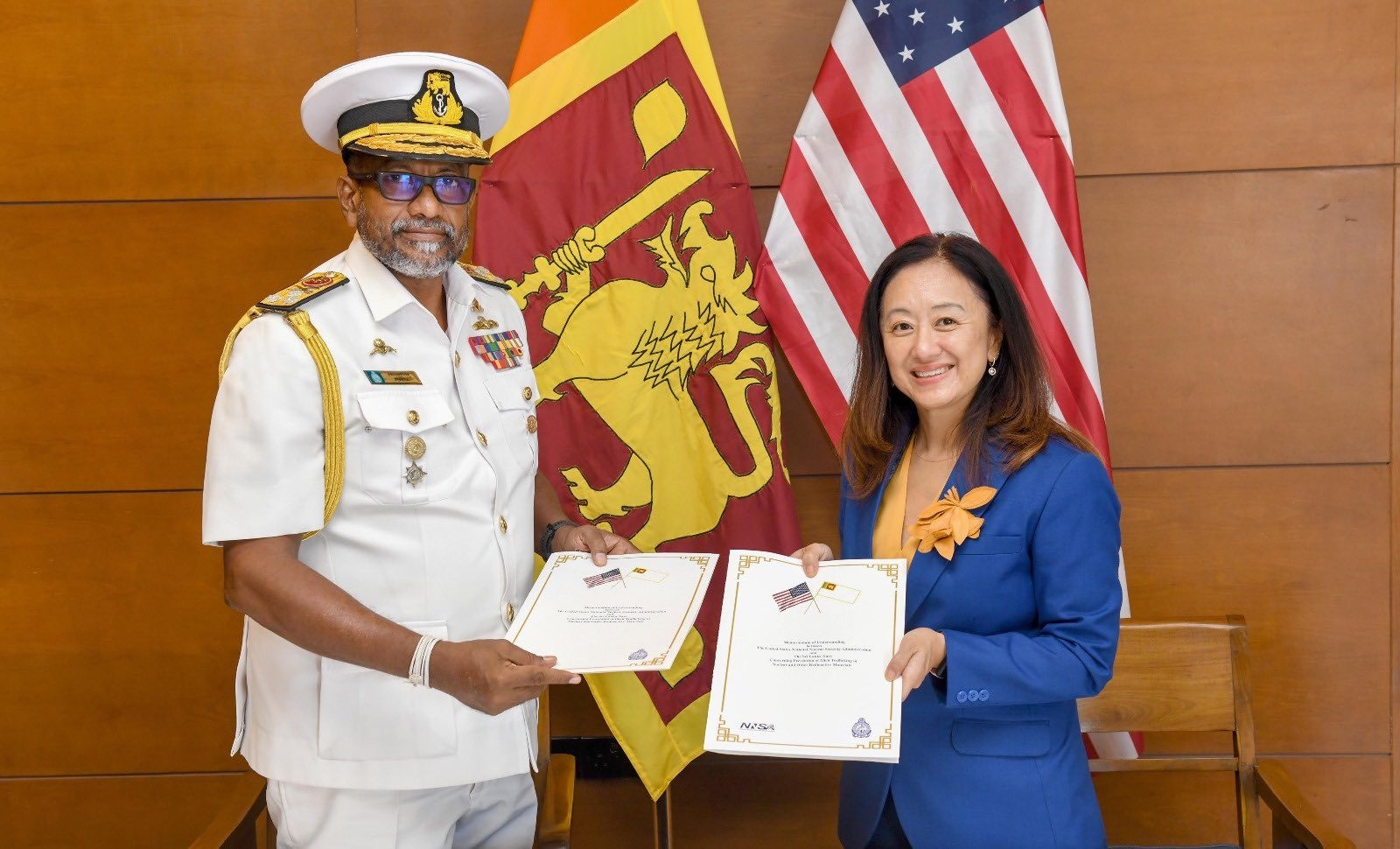The United States is to work with Sri Lanka to prevent illicit maritime trafficking in nuclear and radioactive material.
The US Ambassador to Sri Lanka Julie Chung said that the U.S.-Sri Lanka partnership in addressing global security threats is ever-growing.
“The new MOU between the Sri Lanka Navy and the U.S. Department of Energy’s National Nuclear Security Administration will bolster our joint efforts to prevent illicit maritime trafficking in nuclear and radioactive material,” the Ambassador said on X.
A delegation led by the U.S. Ambassador met with the Commander of the Sri Lanka Navy, Vice Admiral Priyantha Perera at the Navy Headquarters.

The extent of the nuclear and radioactive black market is unknown, but a steady stream of attempted sales of radioactive materials in recent years suggests smugglers have sometimes crossed borders undetected
During the meeting a Memorandum of Understanding was signed between the U.S. National Nuclear Security Administration and Sri Lanka Navy.
The Memorandum of Understanding addressed bilateral cooperation to detect and interdict illicit trafficking in special nuclear material and other radioactive material through technical and methodological cooperation, including the installation and improvement of technical systems for the detection and identification of such material at border crossing control points of the democratic socialist republic of Sri Lanka.
The illicit trafficking of nuclear or other radioactive material is considered by many to represent an emerging but nonetheless concrete threat to international peace and security. In 2007, an international conference convened by the International Atomic Energy Agency (IAEA) agreed that ‘terrorist groups have the intention of attempting to acquire and use nuclear or radioactive material for malicious acts.’Moreover, the conference found ‘a strong sense that the possibility of an attempt is real.’The consequences of a successful attempt could be catastrophic.







